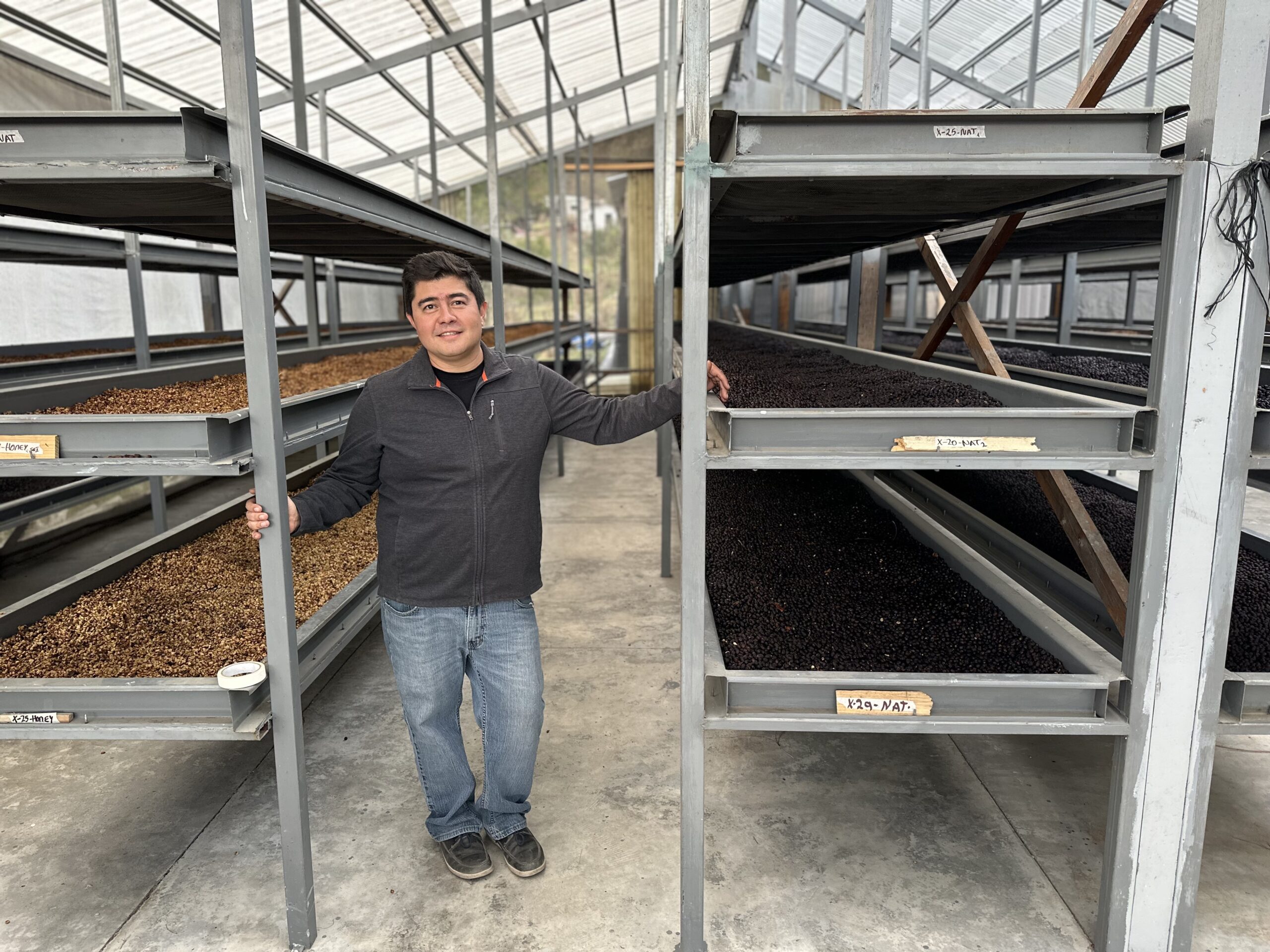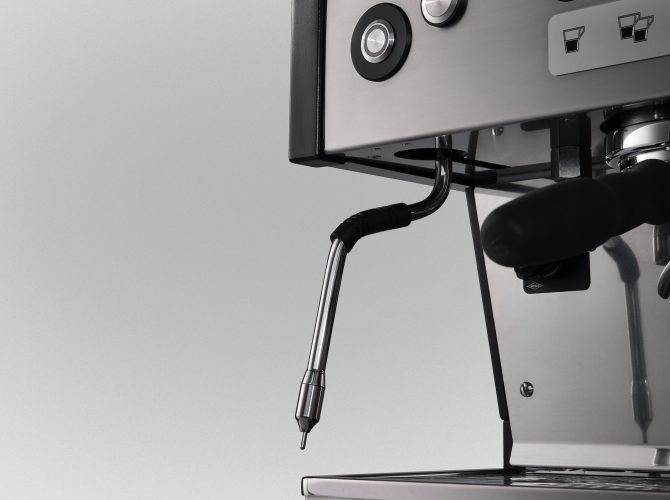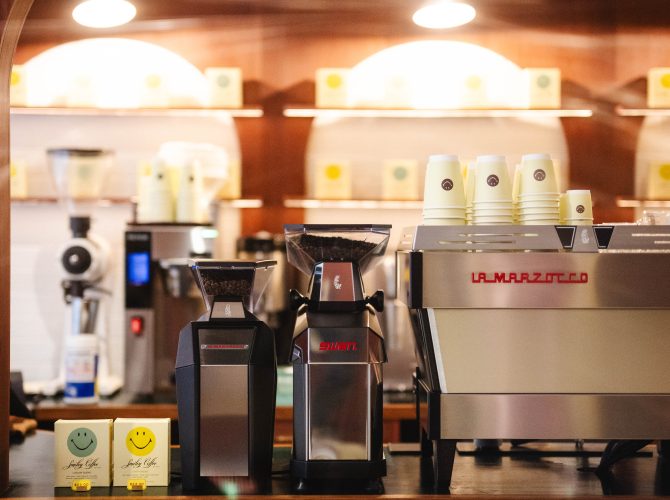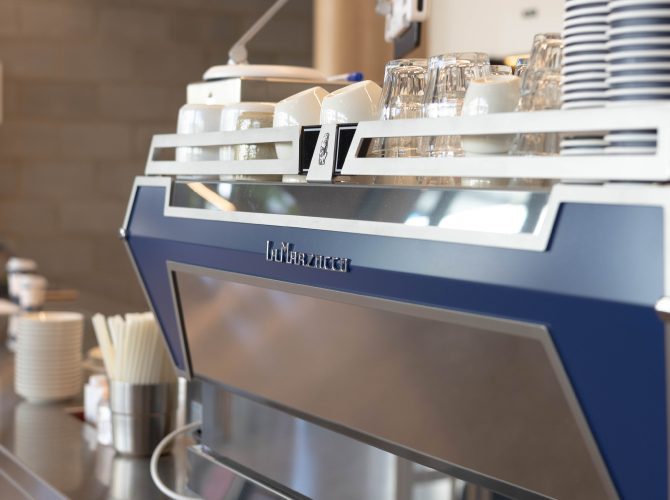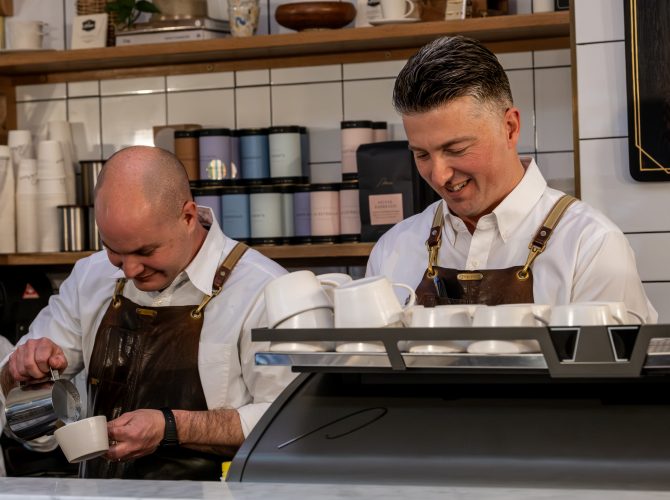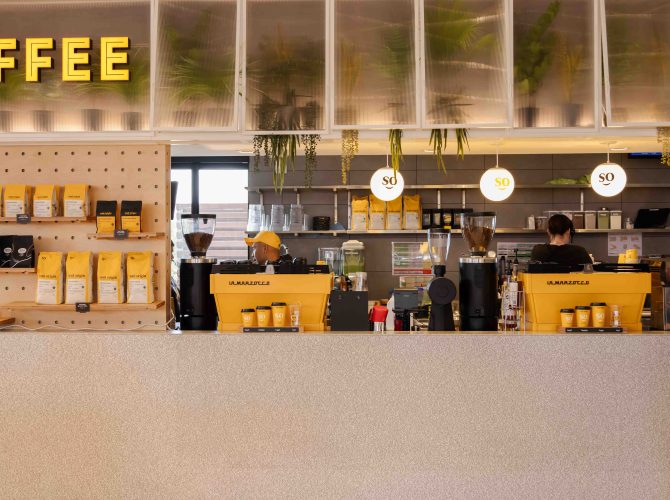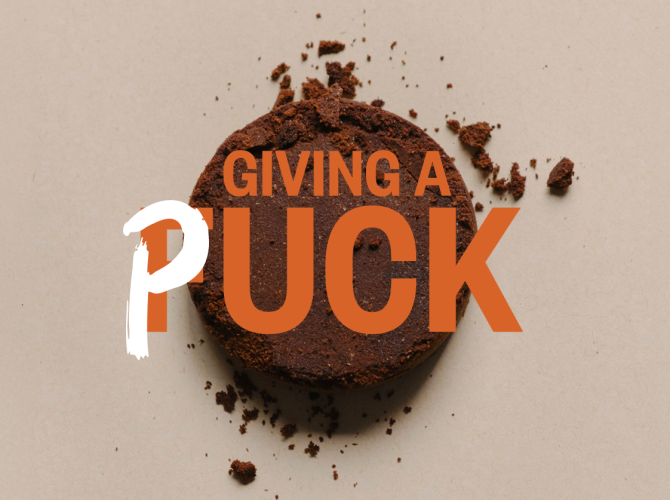Here at La Marzocco, we like to pride ourselves on producing premium handmade espresso machines. However, these machines are nothing without an appreciation and understanding of the coffee which runs through them.
So we wanted to dig deeper into what it takes to produce a quality coffee and what the cost of that quality truly is, at the grower and roaster level.
Speaking with Mark Dundon of Seven Seeds Coffee, who runs a local Melbourne roaster and values transparency and sustainability in the coffee chain as a core of their business ethos. Also to Fredy Milton Morales, a coffee farmer from Guatemala and a long time supplier of Seven Seeds who let us know what the bottom line truly means to those on the ground growing the coffee plants.
Together, we discuss what it takes to make a quality cup of coffee each and every day and how you can play a part in contributing to a fair system for all involved.
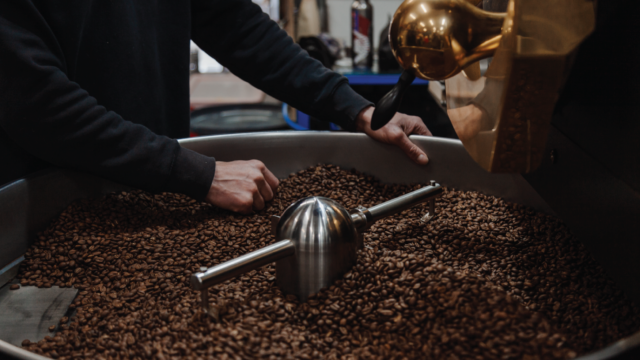
Could you tell us about your brand’s approach to specialty and ensuring transparency in their supply chain
MD: Our brand, Seven Seeds, was founded on the belief that people would want to understand the story behind great Coffee. The original Berkeley street location wasn’t called the fishbowl for nothing. In the cafe, you could see roasting operations, cupping and dispatch, and coffee trees. We had producers work in our cafe to understand our approach and procedures. ( Felipe Croce* Brazil & Raul Perez Guatemala). Fortunately, we didn’t take the mantle of coffee hunters, producers were astute professional colleagues to be partnered with and represented.
We don’t use the word specialty, I see it misrepresented so often and used without any industry cohesion, especially protecting that word. Transparency only shows your true approach to pricing and commitment to producers. And by transparency, I mean total, price, producers, quantity and score.
Could you give us some insight into the key economic pressures you’re facing in the bean-to-cup process and how this is impacting the quality of your Coffee?
MD: A few things are happening in Australia, costs are increasing. Producers are hard hit, picking, fertilizer, and fuel costs. Cafe costs are rising as well as wage costs, and the consumer is increasingly watching their spending. So when you can buy “Specialty Coffee” for $22 kg and you have an understanding of the mechanics behind the costs, you can see we have issues for everyone in the coffee chain.
We are committed to quality, our pricing reflects rewarding producers, and supplying our clients great coffee. Pressures will impact our pricing but not our quality, we compete only in quality not quantity or price.
What does quality mean to your brand?
MD: Quality to us is the “taste of great coffee” and to be able to reward the hard work that goes into producing that Coffee. I love crisp clean subtle tropical fruit flavours from those high grown caturras, the bergamot of the gesha, or the sweetness of the bourbon. I am concerned process driven and infused Coffee being more easily recognised will out compete high grown quality coffee. I want people to understand how hard it is to produce quality coffee and that it shouldn’t come from the fermenter.
Could you share some of the initiatives or actions you are taking to ensure the sustainability and transparency of your bean to cup process is above industry standards?
MD: Seven Seeds publishes a yearly report showing all coffee purchases with a breakdown of the purchase chain. We are contributors to the specialty coffee transaction guide as well as data donors. Sustainable Coffee requires valuing the coffee chain and paying appropriate pricing, we show our actions and payments of what we believe is appropriate.
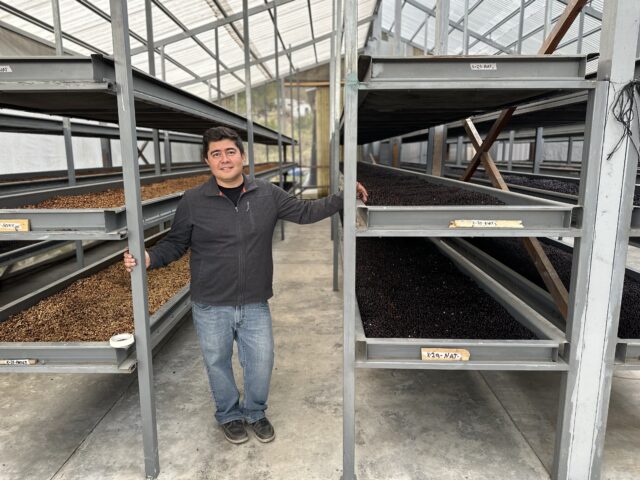
Fredy Milton Morales with his new drying racks at Los Aguatones 1800m
What is one key take-away you want consumers to know about the power of their spend.
MD: I would want them to be able to contact the grower and be able to talk to them.. here is Fredy Milton Morales we have been buying Coffee from him for 11 years, we both believe in a future in Coffee.
FM: In the last 10 years Guatemala has experienced many changes. Many workers have migrated to the USA and Mexico, which has negatively impacted the coffee Industry, forcing us to search and contract new workers every year and in this losing the legacy harvest know how and harvesting the crop with fewer workers each year.
Since 2013 Seven Seeds has committed to a mutual negotiated price, that supports good agronomic practice and helps us to invest in the work we need to do to keep the farm thriving.
I remember the in the first and second exportation we sent only one quarter of volume that we sent this year. They have been supportive partners as we increase our quality standards and increase the volume of selling our specialty coffee.
For us, quality is the key of business. We begin making decisions to prioritise this from when we plant the seeds right through to when we ship the coffee to the roastery. Every step that we take to improve this quality you will taste it in drinking our coffee
At Rosma we believe that your morning coffee needs to be really good to start the day, when you drink Rosma coffee you can understand all of our work just in one taste.
